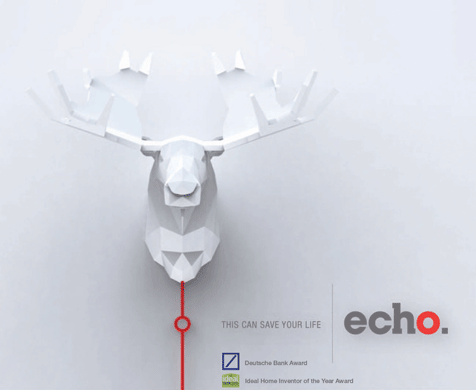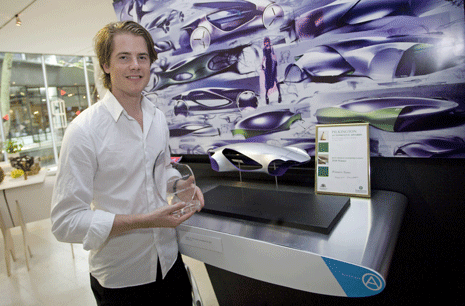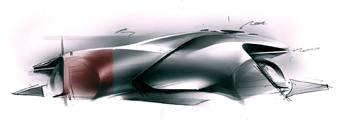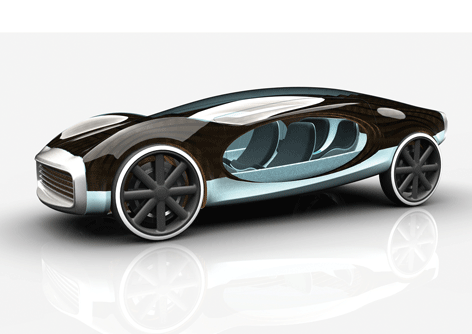
Last week Wednesday I took a trip into London and one of my stops was the Royal College of Art (RCA) Design Degree Show 2010. This is the one degree show I always make time to go to and this year certainly didn’t disappoint. There was the usual mix of inspiring, thought provoking, innovative and totally wacky (well, in my opinion anyway).
On my nose around the various exhibits some that stood out for me included:
- Echo (above) – a ‘plug and play’ smoke and fire detection system created by a group of students in the Innovation Design Engineering (IDE) department. A far cry from the boxy fire detectors many of us currently have in our homes.
- Julian Bond in the Design Products Department (which is incidentally now headed up by Tord Boontje and this was his first Show as Head of Design Products) has been exploring automated craft. His idea for an automated craft machine enables unskilled makers to handcraft artefacts that have the same aesthetic and finished quality as mass-produced ceramic goods.
- Another student in the Design Products Department – Emil Rosen – has created rather intriguing proposals for plumbed in and free standing sinks made out of Ultradur thermoplastic Polyester.
- Then in the IDE department again I came across a project that can only be described as an enhanced sanitary towel. As well as serving its normal function, the Canary D-Pad also offers ladies the benefit of detecting the early warning signs of diabetes, for instance, with its integrated diabetes risk indicator.

I also made a stop at the Vehicle Design Department’s show as I’m always intrigued by what these MA students envision we will be transported around in in the future. As I wandered around I could see a general ‘eco’ theme amongst most of the project work. For instance, the winner of this year’s Pilkington Automotive Award for Best Design Interpretation, an award that has been running for the past 23 years and challenges the RCA students to use their creativity, skills and knowledge of advanced vehicle design technologies to produce ground-breaking concepts, had designed a driverless taxi powered by solar panels. Designed by Swedish student, Marten Wallgren, ‘The Grid’ (above) also includes the ability to connect to similar models on the road to create a ‘community’ charging grid. In Wallgren’s words: “The system consists of autonomous electric vehicles spread over a highly populated area. Together they create a flexible infrastructure of power sources to charge other vehicles in need of energy. The power is created by solar cells and when one vehicle is fully charged it autonomously connects to the vehicle next to it and helps it charge faster because it has twice as many solar panels.”

The judges were obviously impressed with this concept and vehicle designer, David Wilkie, who presented Wallgren with his award, felt that he was making the best use of technologies in order to move car design into the future. “The Grid meets social and environmental needs by developing a solution for improved car sharing systems and energy efficiency whilst also meeting the tastes and preferences of consumers, as users have the option of driving or allowing the vehicle to take over so that the time can be spent working or relaxing,” says Wilkie.

The Best Use of Glazing Award was presented to German student David Seesing for Symbiosis, a complex vehicle design made from an inner and outer layer of glass designed to channel air flow through the vehicle to aid fuel efficiency and temperature control. In the exhibition his design stood out for me especially as I was really impressed by his Bunkspeed hypershot rendering (above).
Although the RCA show is over for another year, the design degree show season is not over yet because this Wednesday I am heading back into London for the opening of Newdesigners Part 2, a UK wide graduate design show taking place at the Business Design Centre in Islington. Look out for my thoughts on that show on the blog later this week.






